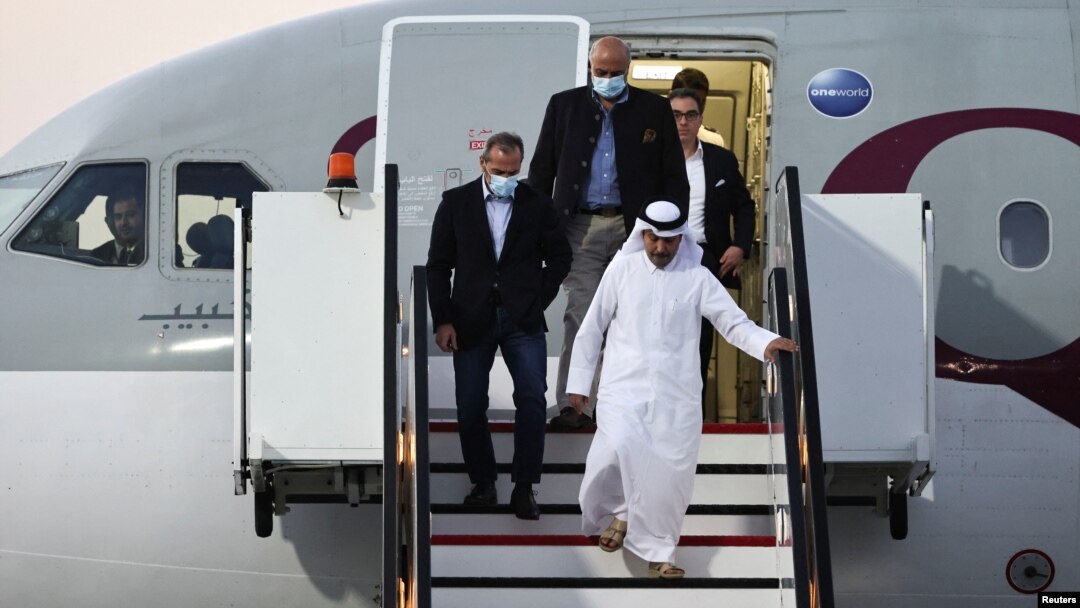Three of the Americans in the swap were identified as Siamak Namazi, Emad Shargi and Morad Tahbaz, who along with the other two Americans were under house arrest pending the transfer.
“I am grateful to our partners at home and abroad for their tireless efforts to help us achieve this outcome, including the Governments of Qatar, Oman, Switzerland, and South Korea,” President Joe Biden said in a statement.
Senior Biden administration officials told reporters the logistics of the swap involved a Qatari plane traveling from Iran to Doha carrying the five freed Americans along with Namazi’s mother and Tahbaz’s wife, who had previously been unable to leave Iran.
From Doha, the group was due to fly to Washington to be reunited with their families. The officials said all would have access to recovery and reintegration services offered by the U.S. Defense Department.
Five Iranians charged or convicted of nonviolent crimes in the United States received clemency under the deal: Kaveh Lotfolah Afrasiabi, Mehrdad Ansari, Amin Hasanzadeh, Reza Sarhangpour Kafrani and Kambiz Attar Kashani
The Biden administration officials said the Iranians who lacked a legal status in the United States would return to Iran through Doha.
Ansari and Kafrani have no legal U.S. status. Afrasiabi and Hasanzadeh are permanent U.S. residents, while Kashani is an Iranian American dual national.
Ansari and Kashani were serving federal prison sentences, while Afrasiabi, Hasanzadeh and Kafrani were on supervised pre-trial release.
The agreement also included the United States allowing $6 billion in Iranian funds frozen under U.S. sanctions to be transferred from accounts in South Korea to accounts in Qatar.
The funds are designated for use only for humanitarian purposes, such as food, medicine and agricultural products.
The Biden administration officials told reporters the system is set up in a way that they are very confident the threat of the money being diverted for other purposes is very low, and if there is a diversion, the accounts will be locked up.
The officials said in addition to the prisoner swap, the United States is also issuing new sanctions under the Levinson Act as it calls on Iran to give a full account of what happened to Robert Levinson, a former FBI agent who went missing in Iran under mysterious circumstances in 2007 and is presumed dead.
Those sanctioned include Iran’s intelligence ministry and former Iranian President Mahmoud Ahmadinejad.
The U.S. officials also warned of the potential for Iran to continue using detained Americans as bargaining chips and said there is no reason for anyone with an American passport to travel to Iran.
Some information for this story came from The Associated Press.


